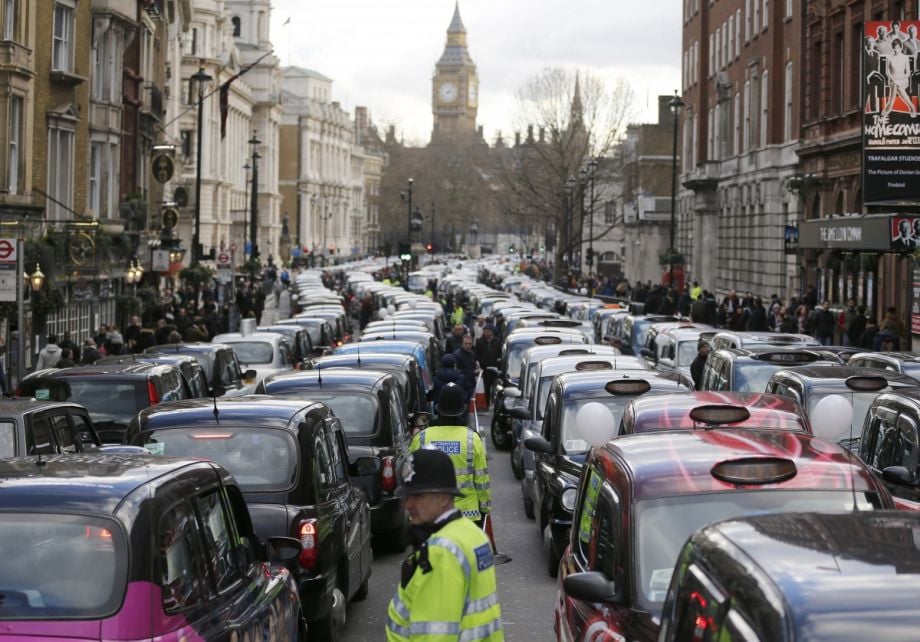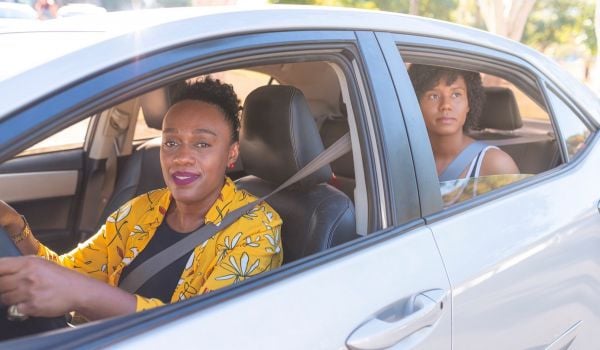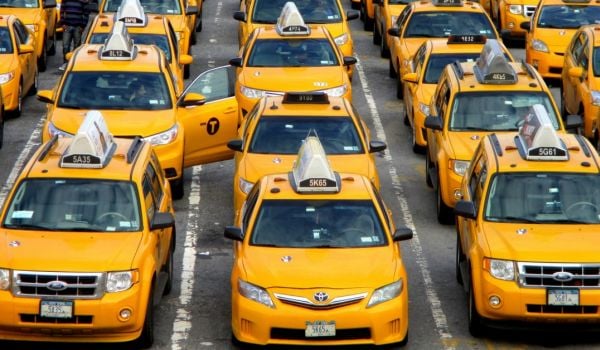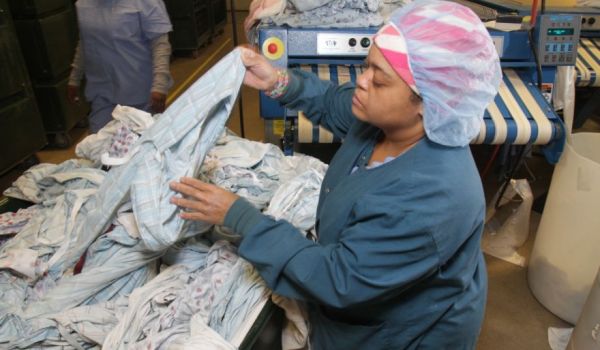Last Friday, Transport for London (TfL) announced it would not renew Uber’s operating license when it expires on Sept. 30. The city transportation authority cited the ride-hailing app company’s habit of flouting government regulations and its approach to reporting serious crimes among the reasons for canceling the license. Uber CEO Dara Khosrowshahi responded with apologies and vows to appeal the surprise decision. More than 801,000 people have already signed a petition that Uber started calling on TfL to reverse the decision.
A coalition of unions, organizers and a left-leaning think tank is responding in a decidedly different way. They’re hoping to take advantage of Uber’s setback and what will likely be a lengthy appeal process to launch a new cooperatively owned, publicly regulated ride-hailing service. They’ve dubbed their idea Khan’s Cars in a nod to London Mayor Sadiq Khan.
“Certainly there are people who are fiercely loyal to Uber and the service they’ve gotten. But over the last few years of negative press for Uber and myriad mistakes they’ve made, there’s been a growing chorus of people asking for a different model that doesn’t minimize driver rights for the sake of company profit,” says Duncan McCann, a researcher with New Economics Foundation, the London think tank involved in the coalition.
In a statement explaining its decision not to extend the license last Friday, TfL said it, “concluded that Uber London Limited is not fit and proper to hold a private hire operator license.” In addition to issues with Uber reporting crimes committed by drivers, including an allegation of sexual assault, TfL also cited improper background checks on drivers and Uber’s use of the Greyball software tool to flout government regulations.
Mayor Khan backed TfL’s decision. In an op-ed for The Guardian on Friday, he wrote that he remains supportive and welcoming of new technologies, but that, “Providing an innovative service is not an excuse for it being unsafe.”
He continued, “I suspect it will take some time before this situation with Uber fully plays out. In the meantime, I will continue my work to help support innovative businesses in London and to create a vibrant and safe taxi and private hire market.”
McCann is hoping Khan’s Cars can be the sort of business model that its namesake supports. Their vision is a service that for customers is essentially identical to Uber, Lyft and other ride-hailing companies, but also provides drivers with a livable wage and an ownership stake. “Rather than it being owned by a tiny tip of the pyramid, everyone can benefit from co-owning some of this wealth,” McCann says.
In the worker cooperative, decision-making and profits would be shared by drivers. Drivers would mostly be employees of the company rather than “self-employed” contract workers as is currently the case for most ride-hailing companies (though there would be opportunity for contract work for those drivers attracted by the self-employment model). Customers would also be members and receive benefits, similar to the way a grocery co-op works.
In addition to the driver-ownership model, Khan’s Cars promises to distinguish itself by being a publicly regulated company. “We want to be a good citizen. We would comply with local regulations instead of seeking with a massive army of lobbyists to minimize regulation or avoid it,” McCann says.
The company won’t ultimately be called Khan’s Cars. But the coalition picked the name to draw parallels between their idea and “Boris Bikes” the nickname for London’s bike-share system, which launched during former Mayor Boris Johnson’s administration.
“With Boris Bikes, people got a feel for the way a big targeted intervention can really change the transport infrastructure of the city for the better,” says McCann.
Finances will be a major hurdle for Khan’s Cars. The worker-cooperative model prevents the coalition from trading massive equity stakes in the company. One idea is to seek support from the city. Again similar to the way some cities have launched bike-share, they’re hoping London might provide the capital or even just the financial guarantee to get the company running.
Though Uber’s predicament has opened the door for Khan’s Cars, the idea didn’t originate specifically as a way to take on the ride-hailing giant. It grew out of a conversation about the impact that automation and self-driving cars are going to have on workers.
“Just in the U.K., 1.2 million people rely on driving for their livelihood. We were thinking about what happens when we automate driving. You’d have 1.2 million people whose livelihood was gone. Our welfare system can’t handle that. The job market can’t absorb those people,” McCann explains.
If drivers own the business, however, they can transition more smoothly into a future without driving jobs. “If drivers owned the company structure, they would then own the robots,” he says. “They could move from being employees of a company to basically owning an automated business.”
Think tanks often just work in the theoretical realm. Thinking is front and center in their name, after all. But McCann insists that Khan’s Cars is more than just an intellectual exercise.
“Probably when we started talking about it a year ago it was more of a thought experiment,” he says. “But since Friday and seeing where the enthusiasm is, this is turning into much more than that. It is a real proposition that can work. There’s this huge awareness of the issue and 3.5 million people looking for a new app.”

Josh Cohen is Crosscut’s city reporter covering Seattle government, politics and the issues that shape life in the city.
Follow Josh .(JavaScript must be enabled to view this email address)
















